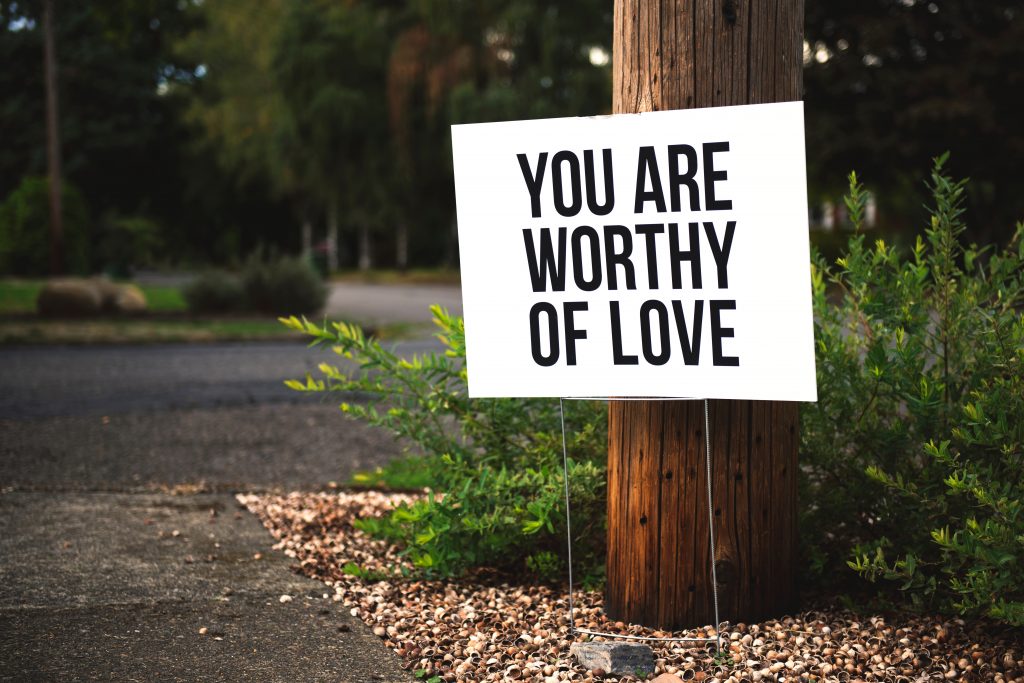
A Violent Relationship Cannot Be An Intimate Relationship Because It Is Not Safe. Part 3
Relationship Key Feature 3 says that for a relationship to feel good it must be 100% safe for both partners at all times. Therefore, if there is any kind of violence, it is not safe. Without safety there cannot be intimacy, vulnerability, discovery, growth, trust and acceptance, all qualities of a successful relationship that not only feels good, but supports both partners in the quest for a high quality of life together, personal and spiritual growth and the ability to sustain the relationship over time. A violent relationship has none of these qualities.
Are you in a violent relationship, or have you ever been? It is possible that you aren’t sure. I’ve run into lots of partners who were not sure, because they were using euphemisms and they were relabeling behavior to avoid shame, and some were simply in denial.
In this post, I have chosen to be very straightforward, very blunt in my message. Why? Because most batterers are in denial about the damage they do. A lot of victims are in denial about that fact that a healthy, successful relationship cannot occupy the same space as a relationship with violence. I want to be crystal clear about the info I provide, about what the facts are, what impact a violent relationship has on both partners, what my professional opinion is regarding a violent relationship, and what, exactly, constitutes violence as it pertains to a relationship between two women. Additionally, having this information might mean the difference between life and death for a woman in a violent relationship. No hyperbole on this issue.
All of you are likely not going to agree with what I have to say, or how I say it. That’s okay. Have at it! I love a good discussion. I’ll try to answer any questions or concerns you have about the material, if you comment or send me an email. Please understand, however, that the information I included in this article is evidence-based, and can be found in reports and articles about studies on domestic violence through numerous resources, both online and in print. Nevertheless, experience tells me that some of you will want to argue. That’s totally cool with me. Argue all you want, just so long as you read the article.
Some of you will feel that you would never, ever, ever, ever put up with any kind of physical violence in your relationship. Some of you will have a variety of responses, all of which circle around the undeniable fact that you yourself have been violent toward a partner, or you yourself have been a victim of violence from a partner. Some of you will have been both a victim and a perpetrator of violence in your relationship. Sometimes more than once.
Read on...Key Feature #3 says that violence has no place in a healthy relationship. It is, in fact, a deal-breaker. It isn’t a deal-breaker because the one who hits is a bad person. Nope, that’s not it. It is a deal-breaker because two people cannot have true intimacy and unconditional love unless there is unconditional safety. A woman cannot let down all her walls and make herself vulnerable to her lover in order to be soul-close when she is remembering the last time her partner smacked her, or if she’s worried about whether it will happen again when she lets down her guard. It just won’t work. All healthy relationships are safe. Period.
Some of you may want to ask what counts as violence. Okay, that’s an honest question, although it is also a sign of our culture and times that people feel like they have to ask because there might be some question about whether a particular kind of pain inflicted on a partner should be considered violence or some other category of behavior. So let me be as clear as the sound of a church bell on a frosty cold night.
A violent relationship is characterized by any effort whatsoever to cause physical pain, or to exert the will of one person over that of the other for any reason. This can include:
•restraining, holding down,
•locking out or locking in,
•withholding money, food, necessities or transportation,
•making threats against the other partner’s loved ones, threatening to take custody of the child(ren),
•isolating the partner from those who might object to her treatment by the violent partner–if they knew of it,
•any pushing, shoving, throwing,
•slapping, punching, pinching, twisting,
•cutting, stabbing, burning,
•kicking, stomping,
•biting,
•choking, strangling, smothering, or
•anything labeled as “she made me do it.”
•Anything prefaced by “she knew better than to push my buttons” or “she wouldn’t stop when I told her to stop” or “I warned her I was going to lose it,” or
•any related comments that deflect personal responsibility for the violence and are a part of the pattern of violence in the relationship.
•Anything done to the victim’s property or, heaven forbid, her pets, or
•anything else done to frighten or terrorize or manipulate the other person as a means of exerting power and control over her and anything else that serves the same purpose that I haven’t included in this list.
This is what constitutes a violent relationship.
Is that clear enough? Are you able to determine whether there has been violence in any of your relationships, either done to you or by you toward the other person? I truly hope you have so. Not because I want to blame you or shame you or scare you or create drama. It’s because it is so very important.
Without a total commitment to 100% safety on both your parts, your relationship has no chance of being the loving, intimate relationship your heart longs for. No one can freely open her heart to her lover while she is also waiting for the other shoe to drop, when the violent partner loses her temper again. No one can open her heart to her lover when she is seething with rage and resentments from a hundred emotional wounds, large and small, that no one seems to understand. Do you see how vital safety is for the very existence of the relationship?
Here’s another aspect you might not have thought about–that of practical jokes. Because here’s the thing–practical jokes are neither practical nor funny. They are purposely designed to hurt, frighten or humiliate the recipient. Therefore, practical jokes have no place in a relationship that is 100% safe. If you have a partner who does mean things and then says, “I was just joking–where’s your sense of humor?” please refer to this article.
If violence, property destruction or terrorizing has happened to you in your relationships, the non-violent times probably feel pretty good after going through the violence. If you buy into it, though, you’ll end up with a violent relationship and nothing more.
If others have urged you to leave a violent relaitonship, have you responded with “But I love her!” or other such statements? If you truly believe that it is love that has you hanging on, I gently encourage you to take a hard look at that.
Is it really true that you love the person who hurt you? Or is it that you love the woman you wish she were, or the woman she was before the violence started, back in the early days when you two were “in love.”
Where there is violence, there is no safety. Where there is no safety, there is no intimacy. Without true intimacy, love cannot survive and grow. That’s the bottom line, as I see it.
You may be with each other for reasons other than love, certainly. Need, maybe. Finances, sure. Habit, definitely. Familiarity, fear, low self-worth, abusive childhood—yes, yes, yes and yes.
A woman can get used to living with violence, you know. She can spend so much time being stressed out, on edge, waiting for the other shoe to drop, so to speak, that it is almost a relief when the violence finally comes. She can have been so hurt and betrayed by her partner’s violence that she becomes used to the grim reality of her life. She becomes used to the cycle of the violence.
The Cycle of Violence
Relationships that involve violence often have a pattern to the violence. There has been a lot of research and study about this. It’s called the “Cycle of Violence.” It goes like this: first there is a build up of tension, and arguing. The person who is the victim is often aware of walking on eggshells to try to keep the other from blowing up, or she may instigate a fight just to get it over with rather than living with the building tension. Then comes the violent episode. Maybe it’s upsetting, or results in minor injuries only. Or maybe somebody really gets hurt–there’s no telling. The episodes usually escalate over time, as well, getting more serious as time goes by. After the blow-up is over, the perpetrator usually feels bad. She’s genuinely sorry it happened and she may worry that her partner will leave her now. She will still have difficulty taking responsibility for her violence. She may say something like, “if you hadn’t done x, then I wouldn’t have gotten so mad.” But she is sorry enough to want to make up with her partner. 
She may buy flowers or gifts, or do something nice around the house. She may seem so sweet, for a while. The abused partner wants so badly to believe her partner when the partner says she’ll never do it again. The violent partner might even really mean it when she says she’ll never do it again. The victim may begin to believe that things are a whole lot better now, and that the bad times are behind them.
Until the tension begins to build again. The violent partner gets grumpy, then begins to snap, control and criticize, just like before. The victim can see the tension build and knows it is starting all over again, but she feels helpless to stop it. The outcome is inevitable, because neither one of them has gotten any help to change the conditions that perpetuate the violence. It doesn’t just magically stop, even with the best intentions of those involved. Significant changes in core beliefs are required–of both parties.
Here is my professional opinion: If you are in a violent relationship, get out. I can’t be any more clear than that. If you stay, you are risking your physical well-being, perhaps even your life. Certainly, your self-worth is getting dismantled. Only when the two of you get significant help for the violence in your relationship is there any chance of turning it into a healthy, safe, relationship. Love is never enough to fix things like violence.
If you are the one who becomes violent, you need to not be in a relationship right now. It’s too much for you. You can’t control yourself. You try to control her in order to manage your anger and anxiety, but it doesn’t work. It’s not her fault it doesn’t work. It doesn’t work because violence just doesn’t work. Control doesn’t work. It doesn’t get you what you want or need. You’d like it to be her fault so that you can pretend to yourself that you could control yourself if she would just behave. But deep down, you know that isn’t true. You know are deeply angry and hurt. You need help with that, beloved. Anybody would.
The good news is, you can get help for your violence. You can get recovery from your anger and your habit of lashing out or losing control.
If you’ve been the victim living in a violent relationship, you need some help, too. You have scars from allowing yourself to be in a violent relationship, maybe because you thought that was the only way you could get love.
It is possible that neither one of you want to hear this message right now, but I’m glad you’ve at least read it. Because you’ve read it, I know it’s in your heads now, and maybe, when the violence happens again you will be ready to hear the message: violence precludes real love and a successful relationship because it makes the relationship unsafe. And, you now know there is help if you want it, to end the violence and live a life in peace and safety. But if you want to try it together, both of you have to want it badly enough to go to any lengths. It won’t work if only one of you is ready to change. That’s just the drop dead truth.

There is wider recognition now that domestic violence happens in same-sex couples with nearly the same frequency that it happens in opposite-sex couples. And just like with hetero couples, alcohol and drugs make it worse. What this knowledge means is that there is help specifically designed for you, as a Lesbian or Queer couple.
There is a domestic violence hotline for those seeking information and help on how to get safe: the National Domestic Violence Hotline at 1-800-799-SAFE (7233) or TTY 1-800-787-3224 or http://www.thehotline.org It is anonymous and requires no commitment to action if you aren’t ready. The people who answer are highly trained. You can call even if you just want to talk.
Look in your local area for more help, including help for same-sex couples and for batterers, female or male. Find referrals through your therapist, coach, or by checking online or calling your county mental health department or google “women’s shelters,” “domestic violence,” or “battered women’s services.”
For those of you who are not in a violent situation and have no concerns that you ever will be, that’s great. This information is still a good thing to know–who knows? You may be called upon to help a friend or relative someday.
For those of you who are not in a violent relationship now but have been in one previously, if you have any concern about your ability to spot someone who may have the potential to be violent, you can work on that by working on yourself. You can improve your boundaries and enhance your feelings of self-worth. That way, your inner radar will let you know when someone who might be trouble crosses your path. You can do this work with a therapist, counselor or coach who is qualified and experienced in this kind of treatment. You do not have to live out the rest of your life as a potential victim or as a potential threat to every woman you might meet.
It probably goes without saying, but I’ll say it anyway–those of us who have had violence or sexual abuse in our childhoods are more vulnerable to becoming victims of domestic abuse. That’s because our natural aversion to being hurt and emotionally abused got erased when we were kids. We just don’t have the same armor that non-abused people have. But we absolutely can replace that lost self-protective instinct.
And if you were abused as a child and you learned to keep everyone at arm’s length so you wouldn’t be hurt again, you also can learn to have a healthy self-protective instinct. You can learn to trust yourself to be able to judge who is a potential abuser and who is safe. It doesn’t have to be all or nothing.
Safety in a relationship is a non-negotiable. You absolutely need it if you are to have any hope of having a healthy, satisfying and successful relationship that is everything you want from your relationship.
In Part 4, we’ll cover emotional abuse and related issues…




